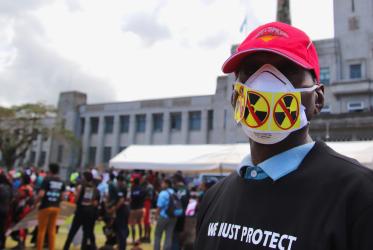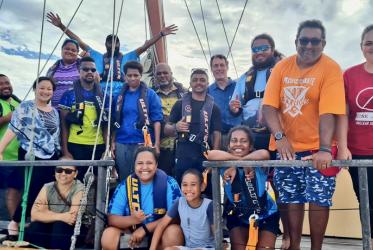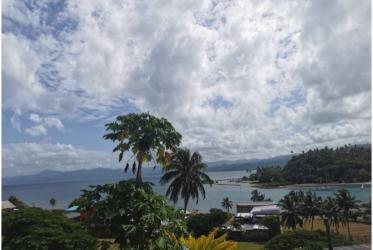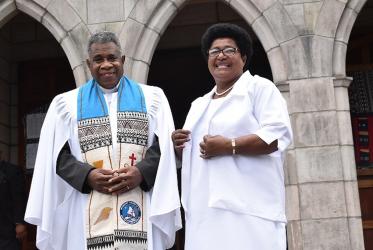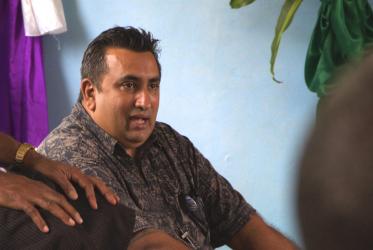Fiji
Fiji comprises a group of islands in the Melanesian part of the Pacific. These were inhabitated long before the arrival of the Europeans in the area. In 1874 the islands became a British colony. Fiji achieved its independence in 1970. It has the second largest population of the Pacific, after Papua New Guinea. Its economy is agrarian. The main export product is sugar. Tourism is an important source of income. Under British colonial rule, many Indians were brought to Fiji, to work in the sugar plantations. They settled in the country and constitute an integral group in the Fijian society, with their own religion, language, culture and customs. In 1987 Fiji suffered two military coups, which had to do with the balance of power between the indigenous Fijians and the Indians, economically - especially the question of land tenure - and politically, in terms of democratic representation. A nationalist movement sought to impose indigenous Fijian control of the country. Eventually an equitable arrangement was found, and embedded in the constitution. The largest church in Fiji is the Methodist Church. Pentecostals and charismatic groups number about 25 percent of the Protestants. The Fiji Council of Churches is the ecumenical body. The Evangelical Fellowship of Fiji is affiliated with the WEA. The Pacific Conference of Churches, the ecumenical regional body, is located in Suva, Fiji's capital.
Ecumenical solidarity visit to Fiji
A team of church representatives paid a solidarity visit to churches, ecumenical organizations and civil society movements in Fiji from 27-29 May 2010. The team travelled as "Living Letters"on behalf of the WCC. Read more...
